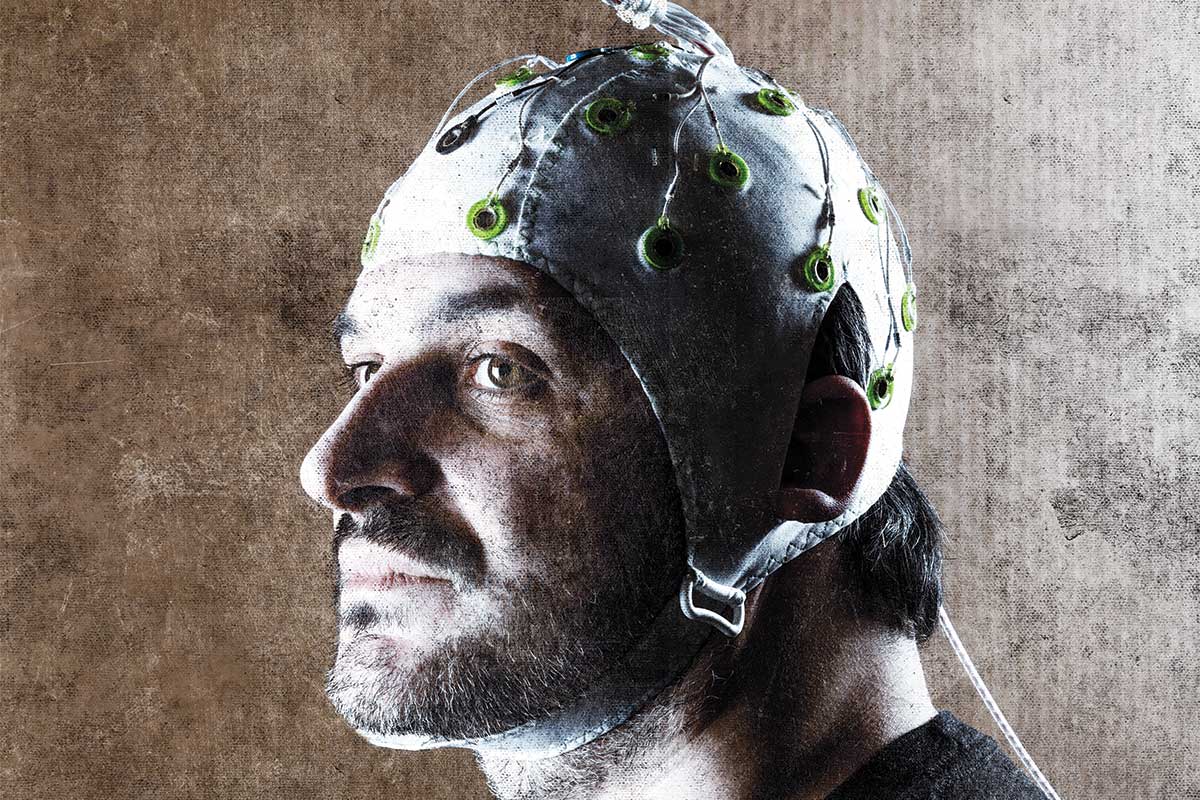Brain-to-brain communication is becoming a reality, says Andrea Stocco, who sees a future where minds meet to share ideas.
You are working on brain-to-brain communication. Can one person’s thoughts ever truly be experienced by another person?
Each brain is different. And while differences in anatomy are relatively easy to account for, differences in function are difficult to characterise. And then we have differences in experience – my idea of flying could be completely unlike your idea of flying, for example. When you think about flying, a bunch of associated experiences come into your mind, competing for your attention. We somehow need to strip away the individual differences to grasp the basic, shared factors.
But it seems possible. Other researchers have been able to use information collected from a group of people to make surprisingly successful, if basic, predictions about what another individual is thinking.
What do you need to transmit information between brains?
The idea is to record one person’s brain activity using a non-invasive device such as an EEG, which involves wearing a cap of electrodes. A computer program filters out what is thought to be the relevant brain activity, and this is recreated in another person using transcranial magnetic stimulation (TMS) – a non-invasive technique that induces an electrical current in their brain.
